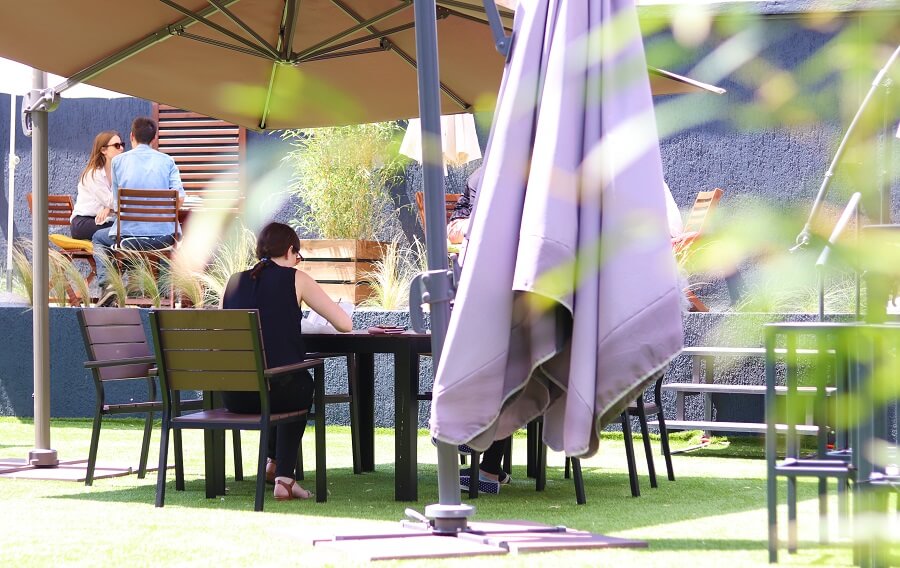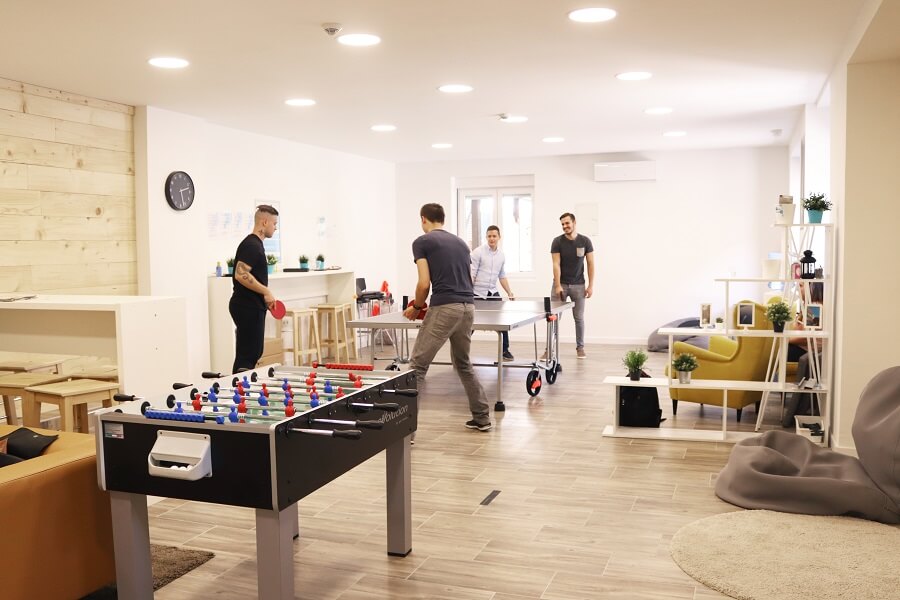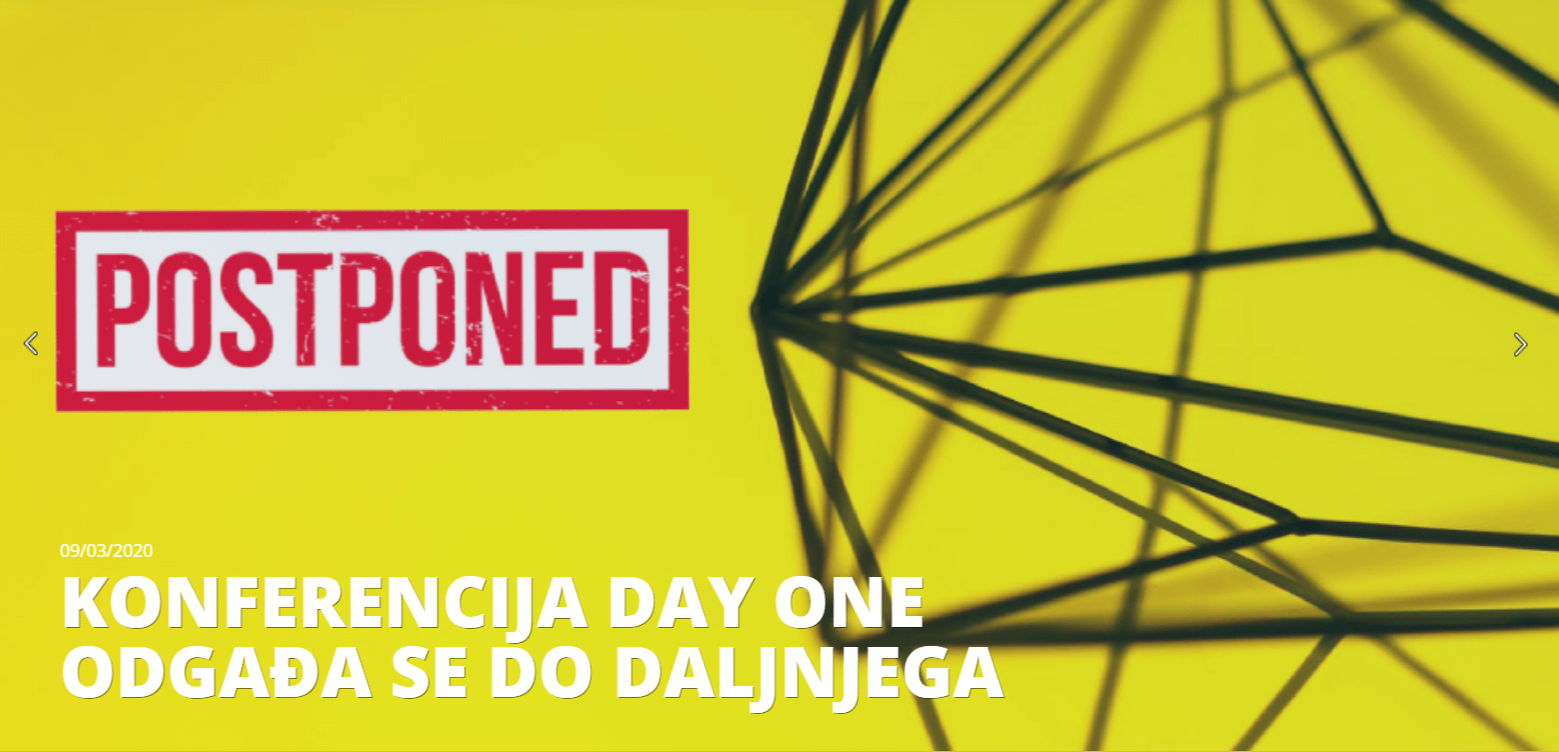Milanović Receives Freelancers in Creative Industries
ZAGREB, April 27, 2020 - President Zoran Milanović met on Monday with a delegation of freelance artists who informed him of the unenviable situation caused by the coronavirus pandemic, because a majority of freelancers in creative industries are not covered by any government aid scheme.
According to the delegation, freelancers were left out and were only subsequently able to apply for incentive measures and only a small portion of them are entitled to those measures, while a majority of freelance artists are still not covered by relief measures, the president's office said in a press release.
"We expect unity and solidarity with freelancers in creative industries in an effort to help them survive this crisis, because if we do not invest in their survival, independent culture in Croatia will be left without freelance artists," the delegation said.
Apart from that, the delegation expressed its dissatisfaction with the proposed bill on freelance activities that is in the pipeline and according to which, the delegation said, the community of freelance artists would lose its jurisdiction.
More news about Zoran Milanović can be found in the Politics section.
Unions Against Employers' Demand for Amending of Labour Act
ZAGREB, April 27, 2020 - Unionists on Monday sharply objected to employers' demands for fast-track change of the Labour Act and appealed for support from the government while employers responded saying the amendments are necessary to regulate the "grey zone" in the economy during the coronavirus epidemic.
Speaking ahead of a meeting of the Economic and Social Council (GSV), which was convened at the request of the unions, union leader, Krešimir Sever told reporters that the meeting was convened to discuss the easing of the lockdown introduced during the coronavirus epidemic.
Sever added that it was more than certain that due to the vociferous demands by employers the Labour Act would also be on the agenda. However, he announced, the unions will "instantaneously close that topic."
"There is no way what they are calling for to pass because they have called for this previously and negotiated with the government when they proposed that the Labour Act be put out of force, as well as collective agreements, labour regulations...," he said.
"Now they are trying again," he claimed and said that employers are trying to disguise their attempts with the story of working from home even though small, and micro employers are already having problems and laying off workers and that they should be allowed to do so without any explanation.
He recalled that this had been in fact one of the proposals put forward by the SDP-led government of Prime Minister Zoran Milanović and that the unions had rejected that idea and would do so again this time.
"Their goal with which they are going against workers needs to be cut in the bud because many of them have used various opportunities to pressure the government. They are getting whatever they have asked and even more. It's time for the government to stand on side with unions, if not - the election will," Sever said.
President of the Union of Autonomous Trade Unions of Croatia Mladen Novosel said that they had called for today's meeting of the GSV in order to be informed of the implementation of the government measures.
It is important for the government to include social partners, particularly the unions, when discussing its measures.
The head of the Croatian Employers' Association (HUP) Davor Majetić said that he would present the issue of the Labour Act and see what the response will be.
Addressing reporters, he said that two issues need to be resolved urgently.
"We know that during the crisis employers have less possibility to pay wages based on working contracts in many fields," he said and advocated a legislative framework so employers can alter wages without having to negotiate each individual working contract.
"Where unions exist that is easier but where there isn't a union, you have no one to negotiate with and that needs to be simplified," Majetić explained.
The other issue related to the Labour Act is the need to resolve the issue of working from home, "because when the corona crisis ends, I believe that a great number of people will choose the option of at least temporarily working from home. Clear conditions, working hours, breaks need to be defined and currently that is not the case and we are in some sort of 'grey zone,'" said Majetić.
More economy news can be found in the Business section.
Bošnjaković Does Not reveal Nominee for Attorney General
ZAGREB, April 27, 2020 - Justice Minister Dražen Bošnjaković on Monday did not say when the new Attorney General could be appointed nor whether the Croatian government had decided, having interviewed six candidates, on whom they would propose for the office to the parliament.
"We will see. We will analyse everything these days," Bošnjaković told reporters in front of Government House where a commission in charge of selecting a nominee for the position of Attorney General on Monday interviewed six candidates who had submitted their application.
Applications had been submitted by Deputy Attorney General Zlata Hrvoj Šipek, Split-Dalmatia County Deputy Prosecutor Nikša Wagner, attorneys at law Veljko Miljević, Mladen Dragičević, Marija Cvitanušić and former attorney Marko Bonifačić.
The commission included, in addition to Bošnjaković and Croatian Prime Minister Andrej Plenković, also Interior Minister Davor Božinović, Finance Minister Zdravko Marić, Public Administration Minister Ivan Malenica and State Assets Minister Mario Banožić.
Until the appointment of the new Attorney General, the Attorney General's Office is being run by Deputy Attorney General Zlata Hrvoj-Šipek, tipped by the media as the new head of the State Prosecutor's Office.
"There were interesting responses. We will analyse everything in the coming days... to consider everything carefully, and then we will commence with the selection procedure," Bošnjaković told reporters.
Once the government decides on the nominee, the Croatian parliament will appoint the Attorney General for a four-year term, following a prior opinion by the Judiciary Committee.
Former Attorney General Dražen Jelenić stepped down on February 19, following revelations of his membership of a Masonic lodge.
More politics news can be found in the dedicated section.
Emergency measures for survival of the Croatian event industry
Zagreb, 27th April 2020—The Event Committee of the Glas Poduzetnika Association has sent four emergency measures to the Ministries of Culture, Tourism, and Economy. These measures are crucial for the survival of the Croatian event industry threatened by the prohibition of public gatherings.
Four suggestions have been sent to the addresses of minister Obuljen Korzinek, and ministers Horvat and Capelli for the beginning of the fight to save the industry that brings more than 4.5 billion kunas of income per year:
- Urgent adoption of the plan for the release of measures prohibiting the public gatherings—especially for events of 100, 500, and 1000 or more visitors. The Association believes that small events, up to 100 people, can get started as soon as possible, given that they are no more risky than, for example, large stores, religious gatherings, and similar. With this in mind, it is necessary to determine the expected protection measures at public gatherings so that collaborators in the event industry can begin to prepare adequately. Besides, we are asking for an urgent announcement of the date before which events of more than 1000 people will certainly not be allowed, so that the organizers have a legal basis for postponing or canceling the event and minimizing incurred costs.
- Extension of the Croatian Employment Service measures—for the most affected companies in the event industry to additional 3+3 months, in total 3+3+3+3. Eligible companies would have a traffic decline of more than 70% in the referent three-month period compared to the same three-month period last year.
- Expansion of the voucher system to event tickets—changes that are already integrated with article 38a of the Act on Provision of Tourism Services regarding the possibility of issuing vouchers, or delayed refunds for packages, to include the event tickets (concerts, festivals, conferences), given that event organizers are compromised in the same way and dealing with the same non-liquidity problem. We suggest that the issued voucher can be used in 365 days from the day of the postponed event for that or other events by the same organizer, and if that doesn't work for the customer, they can get a refund in 30 days from the expiration of 365 days from the postponed event.
- Loosening of the conditions for HAMAG COVID-19 loans for small companies—the extension of the period of using the credits from 6 to 12 months, expanding the fund for HBOR COVID-19 loans, and modifying the conditions to include all activities at risk.
The Croatian event industry, more precisely companies and self-employed that live directly from various forms of public gatherings, counts around 2,000 entities that employ 10,000 people and whose revenue is more than 4.5 billion kunas per year, as mentioned above. Adding the tourist consumption, income from overnight stays, hospitality and all other directly related income, this revenue gets a few times higher than mentioned numbers—it becomes clear that the event industry is one of the crucial parts of Croatian tourism, but also the economy, culture, and society in whole.
The Event Committee is a separate group within the Glas Poduzetnika Association. It includes the most prominent Croatian representatives of the event industry and organizers of the most popular domestic festivals, concerts, conferences, and parties. The Glas Poduzetnika Association is the leading representative of micro, small and medium-size entrepreneurs, self-employed, and skilled trades professionals counting over 8,000 members. They are all gathered around the mutual goal of fighting to save the economy, for more quality entrepreneurial ambient and long-term healthier and more quality society under the parole Croatia 2.0.
For the latest from the Glas Poduzetnika initiative, follow the dedicated TCN section.
You can also join the 55,000+ people in the Glas Poduzetnika Facebook group.
Glas Poduzetnika Survey on Changes in Legislation in Croatia
April 27, 2020 - The latest Glas Poduzetnika survey focuses on changes in legislation in Croatia.
Croatia is known in international circles as a country that changes its laws and subordinate legislation very often. That is a significant barrier for many foreign investors to decide to invest in Croatia or, for those who are already here, to stay. Of course, the speed and lack of clarity of all these rules, in particular, harm the work of all domestic entrepreneurs, who must deal with a mass of unclear, trackless, and often contradictory documents. During this time, we saw that many decisions were made quickly, which then clumsily began to be implemented. With all this in mind, we asked our members a simple question, "Can you keep track of all legislative changes?"
We collected the following answers:
More than 71% say very clearly that they don't follow them because there are too many of them. With them, almost 21% admit that for the majority of legislative acts, they don't even know that they were accepted. About 6% believe they are somewhat tracking them through accounting and other professional services. An alarming less than 1% said they know and follow all the latest regulations.
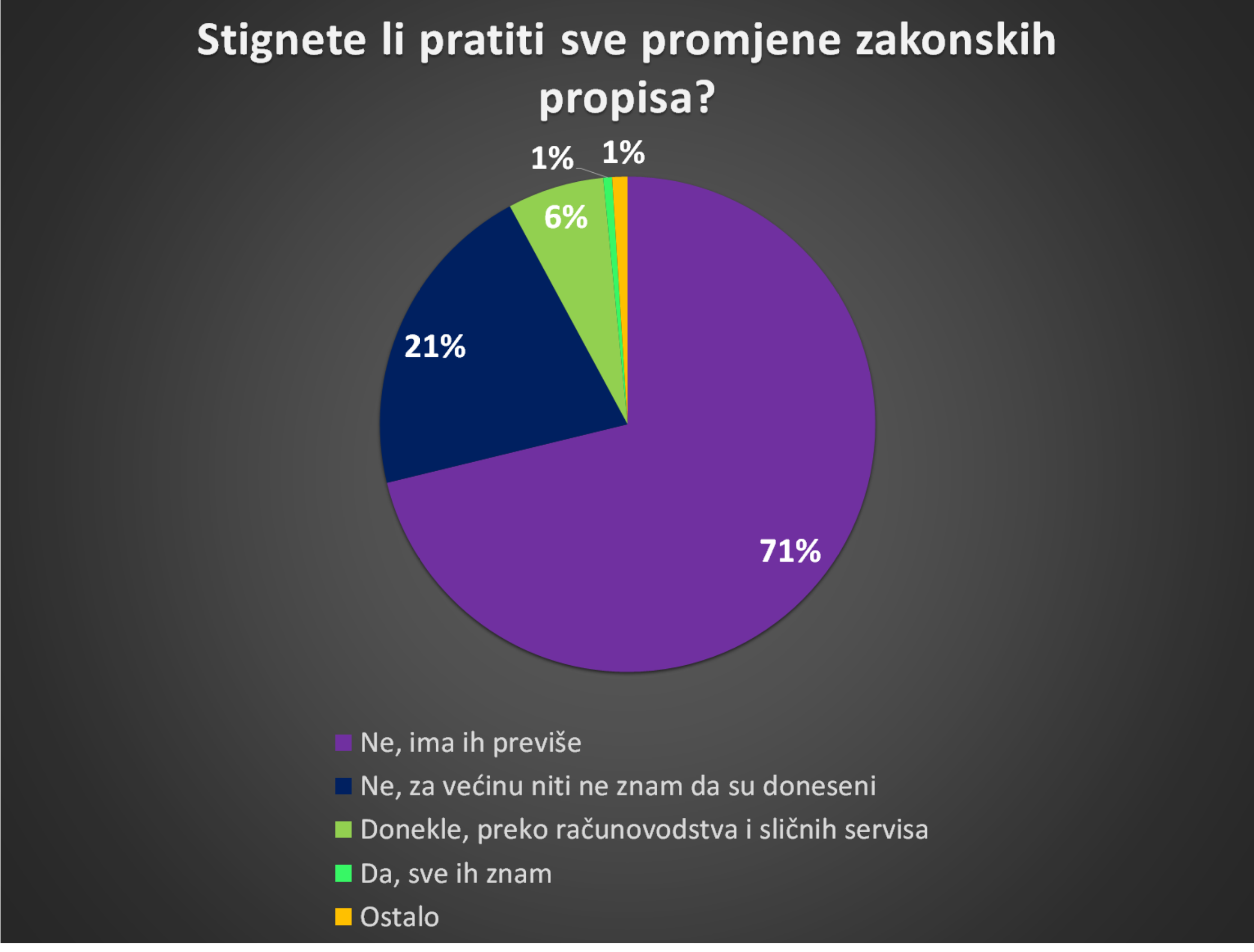
Do you manage to keep track of all changes to legislative requirements?
No, there’s too many
No, for most of them I don’t even know they were implemented
To a certain extent, through accounting and similar services
Yes, I know them all
Other
These results clearly show that it is practically impossible to conduct business with this forest of rules. Every company would need considerable resources to invest in keeping track of any changes that occur now and then. Failure to do so opens various doors, for inspections of all kinds to punish them as they wish. The Glas Poduzetnika Association stands for Croatia 2.0, where everything will be digitalized, and where there will be more justice and less administration that hinders business and the work of the private sector. One of the newest requirements that we have instructed is that for every newly adopted regulation, two old rules get annulled. This way, we want to simplify the legal framework and make it easier for everyone in Croatia to apply it.
For the latest from the Glas Poduzetnika initiative, follow the dedicated TCN section.
You can also join the 55,000+ people in the Glas Poduzetnika Facebook group.
Customer Experience Strategy: Q Experience CEO Domagoj Makar Interview
April 27, 2020 - Work from home companies are on the rise. Meet one Croatian company growing quickly to meet the demand. Interview with Q Experience CEO Domagoj Makar on customer experience strategy and embracing the unique challenges of the current crisis.
The world is changing rapidly, and the coronavirus crisis has only accelerated that change in certain directions. Work from home companies are on the rise, and remote work is only going to be more popular as an increasingly digital world takes shape. Shaping a customer experience strategy in this brave new world brings its own challenges. One Croatian company which is not only adapting to the new world order of working remotely, but expanding rapidly is Q Experience, which is one of the fastest-growing startups in Europe, specialising in building dedicated teams to outperform customers' targets. TCN caught up with their passionate CEO to learn more about this great Croatian success story.
Domagoj Makar is the Co-Founder and CEO of Q Experience, a Croatian BPO company (Business Process Outsourcing Company) specialized in premium customer service. He has over 15 years of experience in the industry - starting as a front-line agent in big telecom company, going up to coaching and team leader positions, up until the director's level, he learned the ins and outs of customer experience.
Founded in 2017, Q Experience has grown to over 300 specialists and 10+ clients. Their primary focus is delivering exceptional customer experience through all customer service channels.

I am finding that people in the corona era are either passing the time with little to do, or have never been busier. I am guessing you are working quite hard... How has business activity changed since COVID-19 changed everything?
We have been following the situation carefully from the beginning, even before the Croatian government implemented quarantine, we started working on transferring our entire operation to a work from home set-up. Since at that point we already had over two years of experience with onboarding and running remote teams, the transfer went smoothly. I must say I am proud how the entire team approached this situation and handled all the challenges that came with it. This allowed us to give peace of mind to our clients, as it meant we could provide them with business continuity despite the situation.
As far as future partnerships and opportunities are concerned, we obviously had to switch our focus to different industries than our usual targets. However, we were able to continue with business as usual, even in an unprecedented situation like this. We have even managed to get three new clients in this period by adapting our business model in a way that that the entire client onboarding operation was done completely remotely. Obviously, there is a lot of uncertainty on the market. No one really knows what the future brings nor what will change permanently. In such times, we take things week by week with our existing and potential clients, avoiding long term binding decisions. Flexibility has shown to be the key currently.
Tell us briefly about the Q experience product, and who is your target client?
QX is a BPO company that provides premium customer service for our clients, across all communication channels (phone, email, live chat, and social media) in 18 different languages.
We try to do our job differently when compared to other BPO’s there. The general approach is that we cover the entire operation for our clients – from recruiting and training to onboarding and management. However, we included our experienced management team with an “all hands-on deck” approach, with each new project. Together with our clients – we see them as our partners, and we tend to seek win-win solutions for every situation. Acting as a proactive partner, we provide flexibility, suggestions and implementation of latest technologies and trends in this business, so our partners can transform their business at a faster pace which is now, during coronavirus outbreak, extremely relevant.
For example, with one of our clients, we implemented smart live chat support on their website, which prevented lead leakage and led to an increase in online sales while optimizing customer service cost year on year growth. Based on this, we’ve won the Bronze Medal at the 2019 International Customer Experience Awards in Amsterdam, in the category of Customer Experience Team - Transformation/Solution, and we were a finalist in another category: Business Change or Transformation - Customer Experience. That was a big deal for a 2 and a half year-old company when competing with companies like Shell, Dell, various Telecoms etc.
But our main asset is the great people that we were able to employ during past 3 years. Our specialists mostly hold university degrees, are fluent in multiple languages, and contributed to building a multicultural working environment within our company that can easily fit into any company culture from our clients. Our prices, albeit not the lowest, are competitive, and they reflect the premium quality service we offer.
We do not limit ourselves in terms of types of industries we work with and have experience working with clients in e-commerce, fashion, consumer electronics, tourism and hospitality, car sharing, and other businesses. Each industry has its specifics and challenges in providing customer service, and we have been able to take on all of them successfully.
For us, the most important thing is that a potential client appreciates great customer service, believes that exceptional customer experience is important for their business overall, and that client seeks long-term win-win partnership as we do.
With a client that shares our views on these 3 aspects, we are at our best.

Why and when did you start, and how has the journey been so far?
Although having very successful corporate careers at the time, we always had the desire to build a business on our own and according to our values. We knew that there is a demand for great customer service on the western market since businesses are moving from traditional brick and mortar to online and digital channels. We also knew that there are many great people in Croatia who are capable of fulfilling that demand. Croatia is a Central European country and historically and culturally belongs to the West. This is of high importance in our business, where one needs to understand the culture, and not only the language of the customer he or she is serving. This has been one of the biggest struggles for offshore and Eastern-European companies that work in our industry. So, we just needed to connect these two points and we started our company in 2017 with just three employees. It has grown to 300 in less than three years.
On our journey so far, we have managed to set up 8 different and beautiful offices, and now with the virus outbrea,k we’ve all switched to work from home. It has been quite a ride for so far in just three years.
Also, with this pace of growth, there have been many challenges, but along the way we have been able to build a great management team that is now running the entire operation.
From day 1, the extreme focus has been put on the work experience of our employees, since we know that the only way we can deliver a great service output, is to have people that are coming to work feeling content. That part includes many different and small details in daily business, and I would say that this is embedded in our working DNA.

You have some eye-catching clients. Without naming names, how does a small Croatian startup get big names like this on board?
We have dedicated a lot of our time in developing a sustainable sales/business development process that generates quality leads monthly. In customer service, one of the most important aspects of getting a new client is timing. Even though some of our current clients have not had a need for customer service outsourcing when we initially contacted them – when the time was right – we were ready to jump in.
It also makes us exceptionally proud that some of our clients recommended us to new and potential clients.
In addition to this, you must show your potential client that you are ready to dedicate yourself to their project and take it to another level. We always make sure we have a single point of contact for every client. At first, it is a C-level person, and later, we designate a team manager for each client. We like to think that, during our long-lasting business development process, the right customer recognizes our attitude, energy, and business values.
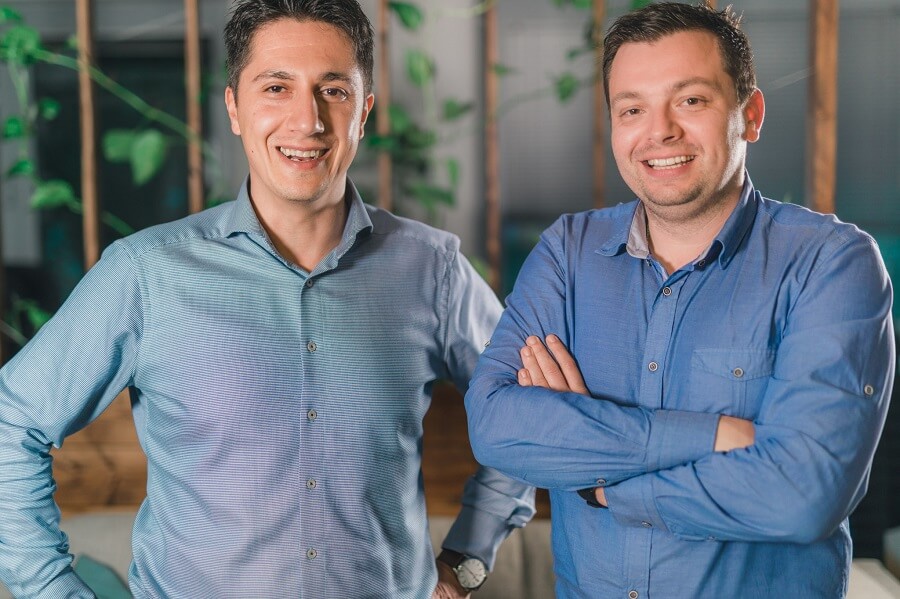
Corona will speed up the process of digitalization globally, which is good news for you. How much have enquiries for your services increased in the last months, and what are the key services being looked for?
Correct. We noticed a lot of businesses switching to online/digital channels: switching from retail to e-commerce and offering their services remotely. This is an opportunity for companies like us, because businesses need an experienced and flexible extra hand to transition their whole customer experience into the digital environment quickly.
The demand for supporting businesses whose business model has been based on physical/offline operations (car-sharing, travel and tourism, retail etc.) has seen a substantial decrease in demand, while on the other hand industries such as fintech, e-commerce, IT and software etc. are growing exponentially, and there is a higher demand for our services such as: sales assistance, helpdesk, complaint management, delivery issues among many others.
Tell us about your ability to upscale from the size of your present operation
With the coronavirus outbreak, an increasing number of businesses are starting to realize that work from home ensures business continuity even in challenging times. For us, that means better recruiting possibilities, since people can work for us anywhere, not just from Croatia, but from different countries as well. I would say that in this aspect, we have a limitless opportunity to grow but still hold on to our core values and ways of delivering the service.
Where will you be in 12 months in terms of staff, projects, revenue (% growth)?
Well, in terms of our growth thus far, we have managed to grow from 1.4 mil euro revenue in 2017 to 5.56 mil euro revenue in 2019, having a 106% of average annual revenue growth rate. The same growth rate was expected for 2020, but due to the coronavirus outbreak, it is hard for me to say what the situation will be in 12 months or at the end of 2020. We did manage to get several new clients this year, as mentioned earlier, and now we are in negotiation with some big European brands. Also, as mentioned earlier, in terms of staff, we started with 3 employees in 2017, and ended 2019 with over 300, our hopes are high as our remote work approach removes all the obstacles in front of finding new talents for our company.
Let us finish with Croatia, which has a very lively tech and IT startup scene, despite not being established hub. Tell us a little about that, and how you see the process of digitalization here. How much will Corona force Croatia into the new era?
Indeed, Croatia does have a lively tech and IT startup scene. I think this situation will be a fresh start for us, a kind of a reset, and it will speed things up, if not push for even bigger changes. We are seeing digitalization happen in our government institutions as well as in the private sector. It is something we were aiming at for years, and now it is happening overnight. So, I do see a lot of possibilities for these new-age companies – IT, tech, digital agencies and even us at Q Experience – to find a way to push old businesses to use the new ways of doing business.
I find that most people in Croatia now realize that the old way of doing business is not the safest in terms of contemporary challenges. We are even noticing people in the agricultural industry looking into finding their ways to end customers by using Facebook groups, digital platforms, and so on. People are becoming increasingly more aware of new digital tools and channels, and they understand that doing digital is currently the cheapest and most effective way for them to reach their end customers. This is happening not just in Croatia, but on a global level, and when there is a big demand for a change – it is a wind at your back to push for novel solutions, even in customer service.
Of course, with my entrepreneurial mindset, I see only opportunities. I am sure there will be challenges and hardships for businesses that will not be able to adapt, that is inevitable. However, I do see a chance for all the new era, modern, and young companies in Croatia to get their piece of the cake - such as Q Experience.
****
In an increasingly unpredictable job market, the work from home option will only become more commonplace. In an era of growing unemployment, see if this innovative and expanding Croatian company is for you in Work from home jobs: Join the Q Experience Team
Forward-Thinking Bjelovar Becoming Croatian "Tax Free" City
As Poslovni Dnevnik writes on the 27th of April, 2020, the decision to completely abolish surtax in Bjelovar, which is becoming well known as the most forward-thinking Croatian city, could not have come at a better time.
If Bjelovar's councilors decide so at the electronic City Council session, the City of Bjelovar will completely abolish surtax after almost twenty years, according to Bjelovarlive. Given that city councilors have unanimously supported the cuts so far, it is expected that this time they will also unanimously support the proposal for its complete and utter abolition. If the councilors do make such a decision, Bjelovar will become the largest city among almost 30 Croatian cities that do not have surtax, thus removing the City of Samobor from that throne.
Surtax of twelve percent was introduced by the Bjelovar city government back in 2001, when Đurđa Adlešič was the head of the city. This local tax was earmarked for raising money for the construction of indoor swimming pools. At the beginning of last year, this fact was recalled by City Councilor Ante Topalović of HDZ. Although surtax was introduced, the idea of indoor pools in Bjelovar were unfortunately never realised. On the other hand, for almost two decades, the city government has been collecting taxpayer money that has been used for other purposes. Namely, about 10 million kuna was poured into the city budget annually on the back of the twelve percent surtax.
As touched on above, the decision to completely abolish Bjelovar's surtax could not have come at a better time. Specifically, due to the economic crisis caused by the ongoing coronavirus epidemic, the move is more than likely to be welcomed with open arms by most.
With the support of city councilors, Bjelovar's city government began cutting surtax back in March 2019, when it was went down to nine percent. The additional three percent surtax on income tax paid by taxpayers who are domiciled or habitually resident in the territory of the City of Bjelovar was reduced in December of that same year.
"We're really becoming a tax free city now," Dario Hrebak stated.
Make sure to follow our lifestyle page for more.
Goran Rihelj of HR Turizam Launches New Tourist Stories Project: Turističke Priče
April 27, 2020 - Goran Rihelj, owner of Croatia's leading B2B tourism website, HR Turizam, has expanded his online presence with a new tourism stories site.
A new inject of online positivity for Croatian tourism was launched yesterday, as Goran Rihelj launched his latest project, Tourism Stories, in a multi-lingual site of German, English and Croatian.
Rihelj, best known for his widely respected B2B tourism portal, HR Turizam, has become increasingly active and vocal in his passion for promoting tourism in Croatia, achieving success in some quarters few believed possible.
Nowhere was this more true than in his successful campaign to put the tourism spotlight on Slavonia with his determined efforts to bring the annual Days of Croatian Tourism to eastern Croatia for the first time. The annual event took place in various location in the east in October and was a great success.
Emboldened by that success, he then set about organising his first-ever conference, One Day or Day One, #hrturizam2030 - an ambitious attempt to bring the main parties from the public and private tourism sector together to move forward on things they could agree on, as well as discuss ways on solving the problems of things they could not. The much-anticipated conference fell victim to the corona shutdown and will now take place later in the year.
Rihelj's new project, Tourism Stories, is described thus on its website:
To travel is to live - said Hans Christian Andersen.
We are passionate travelers, we love exploring and traveling, learning about local tourist stories, and living to travel.
The TouristPriče.hr portal is a new tourist lifestyle portal for the promotion of tourist destinations and Croatia as a tourist destination.
Our tourism now needs the greatest support and assistance, and the very meaning of the portal and the main thread of the guide is the promotion of tourist destinations and Croatia as a tourist destination.
Tourism is stories, and we want to explore and tell all our stories. Let's tell stories, our authentic stories.
Tourist Stories is a new project by Goran Rihelj, founder and editor-in-chief of HrTurizm. This portal is aimed at the general public and is positioning itself as a tourist lifestyle portal that brings you positive tourist stories of Our Beautiful.
Tell stories with us ...
Bravo, Kolege. You can visit the website here.
HNB Releases 1.17 Billion Kuna Through Regular Open-Market Operation
ZAGREB, April 27, 2020 - The Croatian National Bank (HNB) released HRK 1.17 billion (€155m) to commercial banks on Monday, through a regular open-market operation with a one-week maturity and at an interest rate of 0.05%.
Regular open-market operations are one of the measures taken by the central bank to increase the liquidity of the banking system for the purpose of maintaining exchange rate and financial stability amid the crisis caused by the coronavirus epidemic in the country.
Today's amount is HRK 100 million higher than last week, when HRK 1.07 billion (€141m) was released at 0.05% interest and with a maturity until April 29.
For today's auction the HNB had received requests for a total of HRK 1.17 billion and granted them all. The settlement date is April 29 and the due date is May 6.
On March 16, the HNB conducted a structural operation, releasing HRK 3.8 billion (€500m) to the banks with a maturity of five years and at 0.25% interest.
In the past weeks the central bank has also undertaken other measures to increase the liquidity of the banking system, including purchases of government bonds. Last month it carried out two fine-tuning operations buying HRK 4.29 billion worth of government bonds. It has announced the next such auction for Tuesday.
More economy news can be found in the Business section.
Provision on State of Emergency Should Be Urgently Added to Labour Act
ZAGREB, April 27, 2020 - A provision on a state of emergency should be urgently added to the Labour Act because of the payment of wages during the coronavirus pandemic, and the regulation of workers' entitlements should be simplified in the conditions of reduced business activity, the Croatian Employers' Association (HUP) said in a statement on Monday.
On the first day of relaxed restrictions and ahead of a meeting of the Economic and Social Council, the HUP called on the social partners to discuss urgent amendments to the Labour Act.
The coronavirus pandemic has disrupted business activities through no fault of employers or workers, as a result of which businesses were forced to cease their operations and were left with reduced or no income, the HUP said, adding that employers cannot meet all the obligations under employment contracts and that it is no time for a dramatic increase in unemployment.
HUP director-general Davor Majetić said that the relief measures undertaken by the government had helped overcome the initial shock to the economy caused by the pandemic.
"Now is the time for businesses to overcome the negative consequences. The Labour Act does not provide for a state of emergency and we need to change that. The sets of government measures will become effective in May, but that does not mean that the circumstances will change for the enterprise sector for at least another three months. Employers cannot be expected to maintain the pre-crisis level of wages in all sectors. We have to get the wheel of the economy going by the autumn and no one can guarantee what the epidemiological situation will be like at that time of year. A state of emergency must be defined by the law," Majetić said in the statement.
The HUP said that in the circumstances of reduced income and increased costs many companies would be facing the challenges of how to keep jobs and ensure the necessary conditions to continue their business.
It said that labour legislation should simplify administrative arrangements for employment contracts, registration of workers, records of hours of work, job changes, recording of work performance, and work from home.
More economy news can be found in the Business section.


